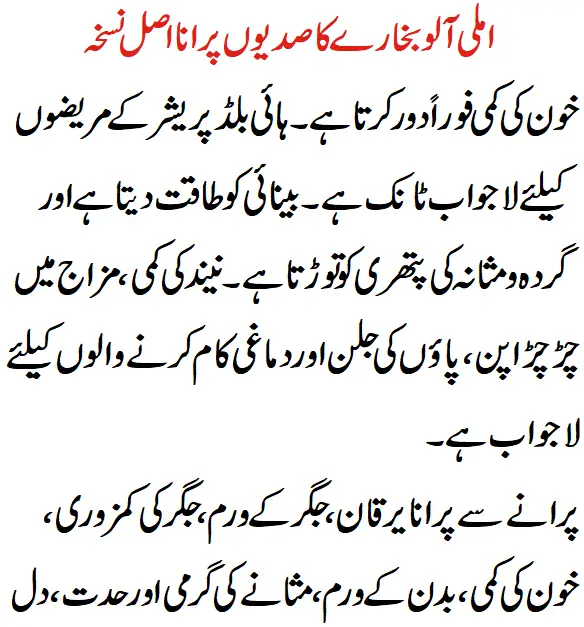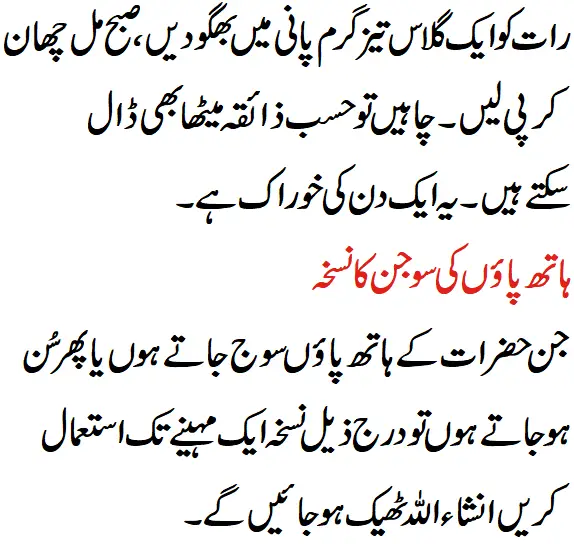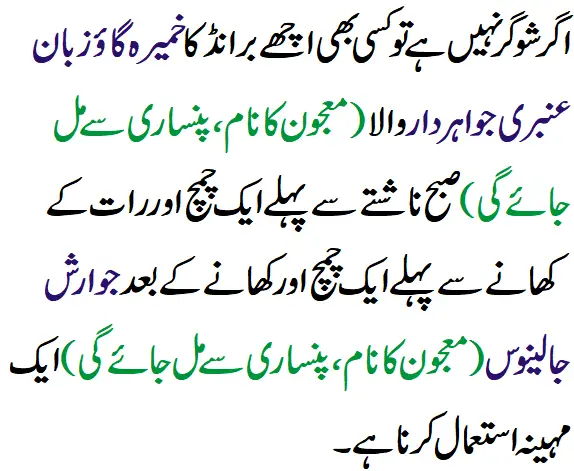
High blood pressure, also known as hypertension, is a chronic medical condition in which the blood pressure in the arteries is consistently too high. This can damage the arteries and lead to serious health problems, including heart disease, stroke, and kidney failure. Many people have this health problem but often don’t realize it. Many people around the world have this disease.
What is High Blood Pressure? High BP is when the force of blood against your artery walls is too high all the time. This condition puts extra strain on your heart, making it work harder than it should. Blood pressure is measured in two numbers: systolic (top number) and diastolic (bottom number). A normal blood pressure reading is around 120/80 mmHg. High BP is defined as 130/80 mmHg or higher.
High Blood Pressure Causes and Home Remedy (Urdu)

Healthy lifestyle choices can go a long way in improving high blood pressure but sometimes proper treatment with medicines is needed to manage it effectively.



What Are the Causes of High Blood Pressure?
There are a number of causes of high blood pressure:
Age: People are more likely to have high blood pressure as they get older.
Family history: If your family has high blood pressure, you are more likely to get it too.
Weight: Being overweight or obese increases your risk of high blood pressure.
Diet: A diet high in salt and saturated fat can increase your risk of hypertension.
Physical activity: People who are physically inactive are more likely to have high blood pressure.
Smoking: Smoking damages the arteries and increases the risk of high BP.
What Are the Symptoms of High Blood Pressure?
Most people with high blood pressure do not show any symptoms. This is why it is also called the “silent killer.”
In some cases, people with high BP may have symptoms such as:
- Headache
- Nosebleeds
- Fatigue
- Shortness of breath
- Chest pain
- Dizziness
- Blurred vision
Effects of High Blood Pressure
It can lead to a range of serious health issues, including:
Heart Disease: Hypertension can cause the heart muscle to thicken, leading to various cardiovascular problems like heart attacks, heart failure, and arrhythmias.
Stroke: High BP can hurt the blood vessels in your brain, making you more likely to have a stroke. This happens when blood can’t flow to a part of your brain.
Kidney Damage: High BP can harm the arteries around the kidneys, potentially leading to kidney disease or even kidney failure.
Vision Problems: It can affect the blood vessels in the eyes, leading to vision impairment or even blindness.
Read Also: Best 5 High Blood Pressure Tablet Name in Pakistan
High BP Management and Prevention
The good news is that high BP can often be managed and even prevented through some simple lifestyle changes. Here are some effective strategies:
Adopt a Balanced Diet: Focus on a diet rich in fruits, vegetables, whole grains, and lean proteins. You should try to limit your sodium intake, saturated fats, and sugary beverages.
Reduce Sodium Intake: Excessive salt can contribute to high blood pressure. You should aim for a daily sodium intake of 2,300 milligrams or less.
Increase Potassium-rich Foods: Potassium helps counteract the effects of sodium on blood pressure. Include foods like bananas, oranges, potatoes, spinach, and tomatoes in your diet.
Eat Magnesium-rich Foods: Magnesium helps regulate blood pressure. Foods like almonds, spinach, avocado, and dark chocolate are good sources.
DASH Diet: The Dietary Approaches to Stop Hypertension (DASH) diet emphasizes whole foods like fruits, vegetables, whole grains, and lean proteins while limiting processed foods and sweets.
Regular Exercise: Engage in regular physical activity, aiming for at least 30 minutes most days of the week.
Healthy Weight: Being overweight or obese increases the risk of High BP. Losing excess weight through a combination of diet and exercise can significantly lower blood pressure levels.
Omega-3 Fatty Acids: Foods rich in omega-3 fatty acids, like fatty fish (salmon, mackerel), flaxseeds, and walnuts. These can help support heart health.
Stress: Practice relaxation techniques such as meditation, deep breathing exercises, or yoga to keep stress levels in check.
Garlic: Garlic contains allicin, a compound with potential blood pressure-lowering effects. Including fresh garlic in your diet or taking garlic supplements may be beneficial.
Final Words:
High blood pressure is a serious health problem that needs to be watched and treated carefully. By understanding its causes, and effects, and adopting healthy lifestyle choices, we can significantly reduce the risk of complications associated with hypertension. Remember, small changes in your daily routine can make a big difference in maintaining healthy blood pressure levels and ensuring a long, fulfilling life.






